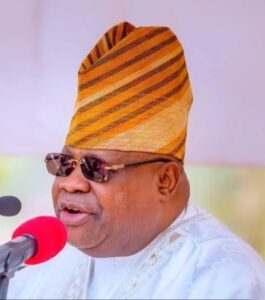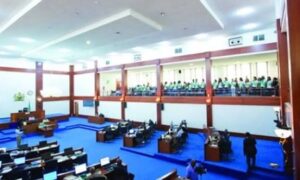
The Independent National Electoral Commission on Monday said it would engage with the National Assembly and other stakeholders to explore ways of responding to the rising cost of conducting frequent bye-elections in Nigeria.
The commission premised its decision on the Supreme Court judgment which states that votes belong primarily to political parties, as well as its records, which show that only in 10 per cent of all bye-elections since 2015 did the party that won originally lose the election.
INEC also said it would “pilot the use of Electronic Voting Machines at the earliest possible time (not Edo and Ondo), but work towards the full introduction of electronic voting in major elections starting from 2021.”
The commission gave these details in its 17-paged policy document on conducting elections in the context of the COVID-19 pandemic, signed by its chairman, Prof. Mahmood Yakubu, made available to journalists in Abuja.
According to the document, the commission would ensure the use of electronic and non-contact means to recruit ad hoc staff beginning with the governorship elections in Edo and Ondo states scheduled for September 19 and October 10, 2020 respectively.
The commission also said it would reduce to a minimum interstate movement of staff, including ad hoc staff, for off-season and bye-elections to reduce the risk of transmission of coronavirus.
The document reads, “The commission will engage with the legislature and other stakeholders to explore ways of responding to the rising cost of conducting frequent bye-elections, especially in consideration of the Supreme Court position that votes belong primarily to political parties, as well as the Commission’s records, which show that only in 10 per cent of all bye-elections since 2015 did the party that won originally lose the election.
“The commission will engage relevant authorities, including the legislature, to designate election as an essential service to enable the commission function effectively in times of national emergency.
“The commission shall revamp its election planning and implementation-monitoring processes in the light of the COVID-19 pandemic. Consequently, the commission in planning elections shall respond to the growing demand for deepening the use of technology in the electoral processes, including the introduction of electronic voting.”
Apart from developing a new election budget template to reflect the likely impact of the COVID – 19 pandemic on the funding profile of electoral activities, INEC said it would constantly












